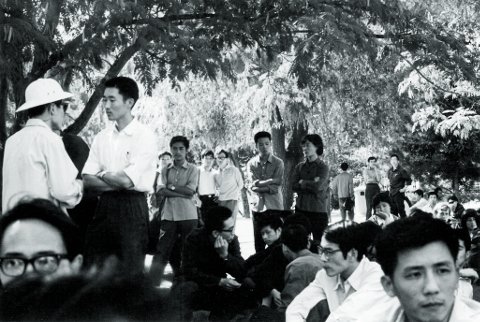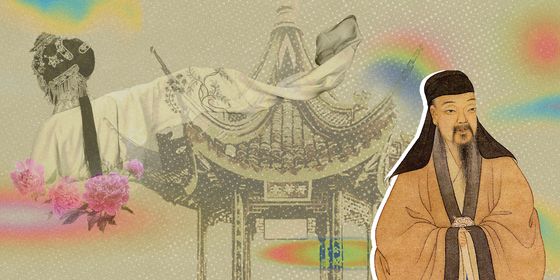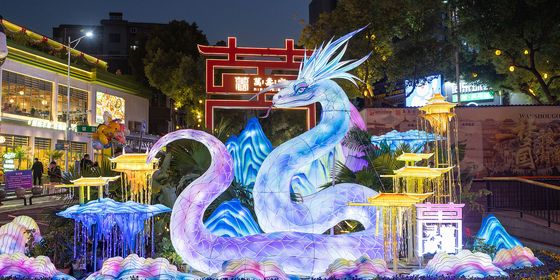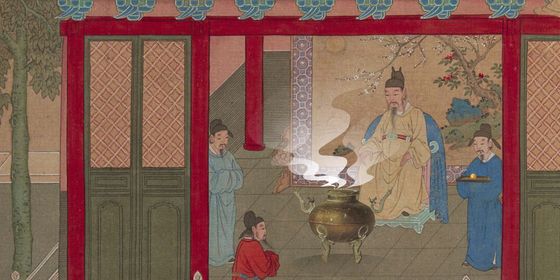Wenyi qingnian: Are they the depoliticized remnants of the 80s youth movement, or just pretentious?
You see them around China’s first tier cities: young, often fashionable but sometimes decidedly anti-fashion, lounging in cafes, tapping away on their mobile devices, perhaps strumming a guitar. They are not so engrossed in the online world as the “otaku” youth who become lost in the byzantine subcultures of anime and online games, eventually losing their ability to socialize with the opposite sex, nor are they quite as reviled as the tuhao nouveau riche—although they too are criticized when attempts at sophistication go awry.
They are the wenyi qingnian (文艺青年), or cultured youth. Some have called them the Chinese hipster, and like its Western counterpart, it can be used as a slur, but in China it really depends who you ask. Everybody and nobody knows how to define them, but they are most certainly a modern subculture—or perhaps the resurrected, depoliticized version of an older one.
They are into literature, poetry, and music. They strive to be different. They are trendy, possibly environmentally conscious.They occasionally embrace the label, but are often hesitant about doing so. Part of the reason is that the term has become so overused that a backlash was bound to occur. After all, if you go around calling yourself a “cultured youth” don’t be surprised when the oh-so-Chinglishy-but-ironically- hip term “zhuangbility”, which has a similar meaning to poser/pretender, gets leveled at you.
But despite the surface similarities, there are some significant differences between wenyi qingnian, or wenqing (文青), and the hipsters of the West.
When asked how to define wenqing, one 22-year-old Chinese student, who likes to go by her Japanese name Yuki, said the term is used so broadly that it covers a variety of niche groups. “You can use the word in many ways. It can be negative, sure. You can use it to describe a guy who plays guitar but is mostly doing it to get girls,” she said, adding that it is also used to describe people who are genuinely interested in the latest cultural trends.
She pointed out similarities with a previous youth movement—the wenxue qingnian (文学青年). These were the literary youth of the 1980s who became enamored with poetry. Some of them went on to debate the philosophies of liberalism and communism.
It is impossible to say conclusively that one subculture became the other; after all, wenyi qingnian has only really become a popular term in the last four years or so. But, it seems almost certain that they occupy the same niche in society—the well-educated youth, interested in culture. Though it would seem that the wenqing have been de-politicized and instead focus on cultural pursuits, to the exclusion of the political.
Contrast this with the origins of the Western hipster, who first emerged out of the 1940s jazz scene. Far from the outraged, idealistic wenxue qingnian, the original Western hipsters (who were hipsters before it was uncool) also defined themselves by their familiarity with emerging cultural trends but did so with a more jaded eye. They didn’t attempt such things as changing society or even defining themselves, rather, they sought to distance themselves entirely from mainstream society, rather than reforming it, to stay ahead of the “squares”.
The modern hipsters may have ditched much of the jazz background, but maintained their aloof presence and desire to remain apart from society, along with their focus on the latest cultural trends. It is here that the wenqing and hipsters manage to converge. When asked to describe wenqing with a word, Yuki goes for “sentimental”. “They always write about relationships. This is why people think they’re so sentimental.”
Literature is a fairly common thread that runs through discussions of wenqing. In order to be considered cultured, one must be on good terms with the written word, be it as a consumer or creator. Websites such as Qidian.com are a popular haunt, allowing writers the chance to post their pieces, often “sentimental” love stories, and receive exposure based on the number of clicks they receive. Some have gone on to make book deals and achieve success.
Of course, it’s not just sentimental romance tales that draw interest. Critically acclaimed works in any genre are likely to crop up in wenqing discussions, with recent successes like the science fiction novel The Three-Body Problem by Liu Cixin in vogue as well as Jia Zhangke’s film A Touch of Sin—notable in the West for its nomination for the Palme d’Or at the Cannes Film Festival, but hasn’t been able to get a broadcast license in China. Previous darlings of the Chinese film establishment, such as Zhang Yimou and Feng Xiaogang, would appear to have had too much mainstream success to warrant much attention from those striving to differentiate themselves based on culture.
And no doubt, as time passes, the cultural touchstones which define the current crop of wenqing will fade to be replaced by the latest cultural sensation.
But certain genres have staying power, particularly Taiwanese cultural products. Though of course, this brings its own set of considerations to a group which seem to barely even dabble in politics, but that isn’t to say it avoids this entirely. Taiwanese singer Deserts Chang, known as Zhang Xuan on the Chinese mainland, occupies a niche somewhere between indie performer and pop success, given her contract with Sony BMG. She hasn’t shied away from political content in her songs, which is perhaps one reason for her popularity among some wenqing and the reason why others object to her.
In 2013, her song “Rose-Colored” won the “Best Lyricist” category at the 2013 Top Chinese Music Awards, and the song focused on the plight of marginalized groups including political demonstrators and homosexuals. When she performed in the UK later that year, a student brought along Taiwan’s ROC flag. Chang asked the fan to come on stage for the performance, and according to the BBC, she remarked, “I have not felt so patriotic for a while...and I am from Taiwan.” The immediate reaction was a shout from a fan, apparently from the Chinese mainland. “No politics today,” she shouted in English. “We just want to have fun.” The reaction on Weibo was swift and unforgiving. A wave of angry sentiment emerged, with calls to cancel her concerts and ban her from the Chinese mainland.
The case was illustrative of how harsh online sentiment can be. Wenqing are not immune to this. All too quickly, they can be accused of being uncultured idiots.
Perhaps the overall lesson is that calling yourself a “cultured youth” unsurprisingly can result in criticism. Being cultured enough to have someone else call you one can be nice, but you might want to double-check the praise is genuine.













